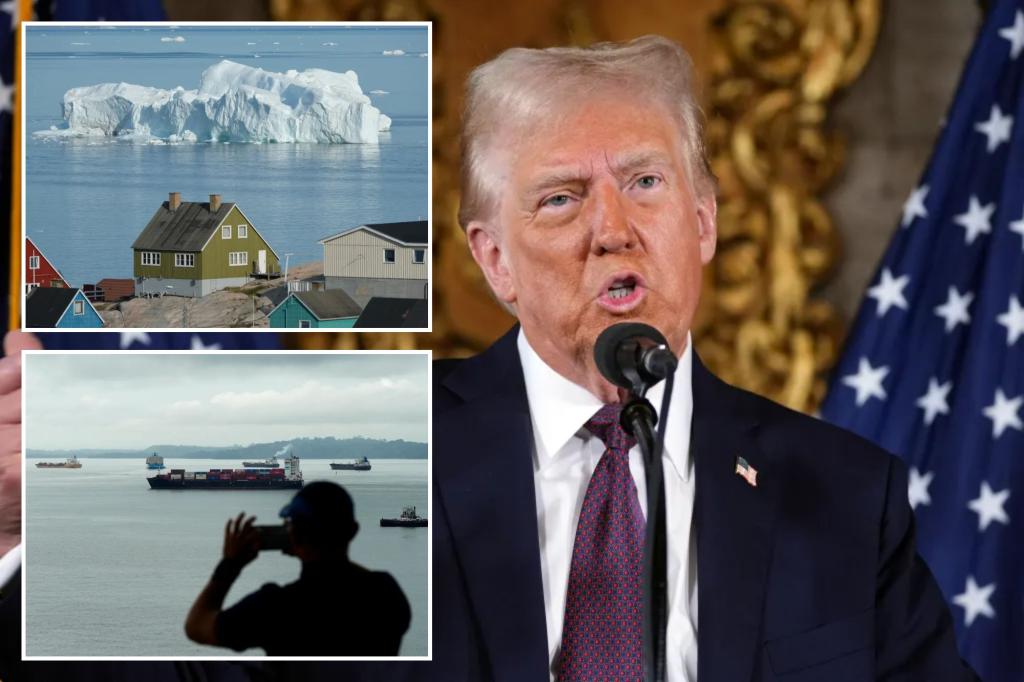President-elect Donald Trump’s pronouncements regarding the potential acquisition of Greenland and the Panama Canal as US territories have ignited a firestorm of controversy, raising concerns about international law, geopolitical stability, and the future of US foreign policy. His statements, delivered during a press conference at Mar-a-Lago, suggested a willingness to consider military force or economic coercion to achieve these objectives, a stance that has been met with widespread condemnation and disbelief from both domestic and international observers. The implications of such actions, if pursued, would be profound, potentially reshaping global power dynamics and jeopardizing established international norms.
Trump’s rationale for acquiring Greenland centers primarily on national security concerns. He asserts that the island, currently a self-governing territory of Denmark, is strategically vital to the United States, citing the presence of Chinese and Russian vessels in the surrounding waters. He further questioned Denmark’s legal claim to Greenland, arguing that if Denmark does possess legitimate ownership, they should relinquish it to the US. This assertion disregards Greenland’s autonomous status and the principle of self-determination, a cornerstone of international law. The idea of forcibly annexing a territory in the 21st century evokes historical precedents of colonialism and imperialism, concepts largely considered relics of a bygone era.
The president-elect’s comments on the Panama Canal reflect a similar disregard for international agreements and established norms. He criticized former President Jimmy Carter for the 1977 Torrijos-Carter Treaties, which facilitated the transfer of control of the Panama Canal to Panama by the year 2000. Trump expressed apprehension about China’s growing influence in the region and its involvement in the canal’s operations, suggesting that the US should reclaim control. This position overlooks the decades of peaceful and successful operation of the canal under Panamanian management and ignores the complex legal framework governing its operation. Reversing the terms of the Torrijos-Carter Treaties would not only damage US relations with Panama but also undermine US credibility on the international stage.
The implications of Trump’s statements extend far beyond the immediate concerns regarding Greenland and the Panama Canal. His willingness to contemplate military force or economic coercion to acquire territories raises fundamental questions about his understanding of international law and the principles of sovereignty and self-determination. Such actions would undoubtedly destabilize international relations, potentially triggering diplomatic crises and escalating tensions with other nations. Furthermore, the use of military force to achieve territorial expansion would represent a dramatic departure from established US foreign policy principles and could significantly damage America’s standing in the international community.
The international response to Trump’s pronouncements has been overwhelmingly negative. Denmark has firmly rejected the notion of selling Greenland, emphasizing the island’s autonomous status and the right of its people to self-determination. Other nations have expressed concern over the potential for increased militarization and geopolitical instability should the US pursue such aggressive territorial acquisition strategies. The widespread condemnation underscores the potential for these statements to isolate the United States and erode its global influence.
Ultimately, Trump’s pronouncements regarding Greenland and the Panama Canal represent a significant challenge to the established international order. His willingness to disregard international law and contemplate the use of force raises serious questions about his commitment to peaceful conflict resolution and respect for national sovereignty. The implications of his statements, if translated into action, could be far-reaching and potentially disastrous for global stability and US foreign relations. The international community will be watching closely to see if these pronouncements are merely rhetorical posturing or a harbinger of a more aggressive and destabilizing US foreign policy.

